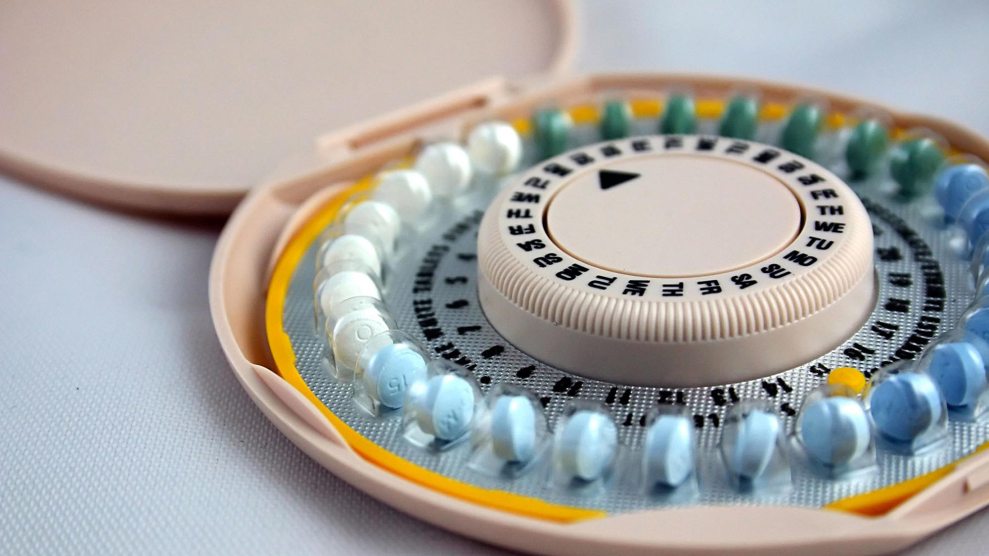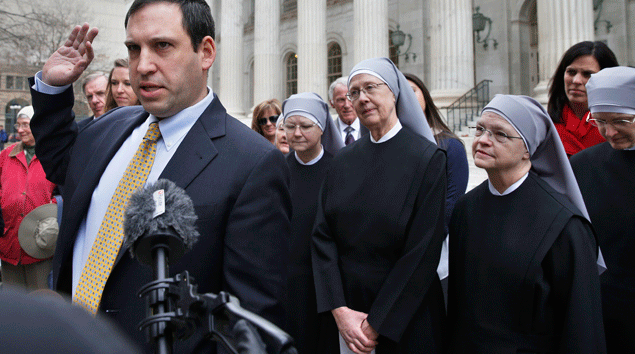
crankyT/iStock
Last week, Donald Trump announced that Rep. Tom Price (R-Ga.), an orthopedic surgeon known for fierce criticism of the Affordable Care Act, is his choice to lead the Department of Health and Human Services (HHS), the roughly $80 billion federal agency whose 80,000 employees are tasked with administering numerous programs relating to Americans’ health, including the Affordable Care Act’s contraceptive mandate—which requires employer-sponsored health insurance to cover birth control without a copay.
Reproductive rights advocates expressed serious concern over his appointment, in part because during his two decades in politics, first in the Georgia senate and then as a six-term congressman, Price has been a staunch opponent of abortion. In 2011, he voted for a ban on the use of training grants to teach medical students how to perform abortions, and he has twice voted for a federal ban on abortions after 20 weeks.
“Tom Price is someone who has made clear throughout his career that he does not trust women to make our own decisions about our health care,” said Sasha Bruce, senior vice president of NARAL Pro-Choice America, in a statement following Trump’s nomination of Price.
Pro-choice advocates are also worried about Price’s long history of opposing contraceptive access. As HHS secretary, Price would have the power to roll back the ACA’s contraceptive mandate without congressional approval, simply by changing the definition of preventive care to exclude contraception. It’s a move that is well within the realm of possibility, given Price’s enthusiasm for the repeal of the mandate and his support for a number of other anti-contraception measures. Here’s a look at a few of them:
- Personhood rights for fertilized eggs: In 2005, Price co-sponsored the Right to Life Act, a bill that proposed defining life as beginning at conception. In practice, this would mean that zygotes would have received full legal rights and protections, making forms of birth control that might expel an already-fertilized egg—the IUD or the morning-after pill, for instance—illegal. Price is a member of the anti-abortion Association of American Physicians and Surgeons, which has also aligned itself with the personhood movement, publishing a resolution in 2003 that defined human life as beginning at conception.
- Removing contraceptive funding from US health programs aimed at helping women with obstetric injuries: In 2005, a House bill came to the floor proposing $7.5 million in US aid for programs in Africa, Asia, and elsewhere aimed at the treatment of obstetric fistulas—a debilitating condition that often results from long or difficult labor, particularly in young girls. It causes pain and loss of bladder control, and there is also the added problem of embarrassment and isolation. Contraceptive access is one key strategy to curb fistulas, by preventing pregnancies in girls before they reach adulthood. Price voted for an amendment to the bill that removed contraceptive services from US-funded fistula programs.
- Repealing the ACA’s contraceptive mandate: Price has long opposed the ACA’s contraceptive mandate. He believes the requirement is “a trampling on religious freedom and religious liberty” and that women who can’t afford contraception don’t exist. “Bring me one woman who has been left behind. Bring me one,” he told Think Progress in 2012. “There’s not one.”
- Conscience clauses exempting insurance companies from contraceptive coverage: In September 2013, Price voted for a proposed amendment to a House appropriations bill that would have allowed insurance companies, citing religious beliefs, to stop covering preventive reproductive health care for women, including birth control.
- Defunding Planned Parenthood: Price has repeatedly voted to defund the women’s health provider. Planned Parenthood is an important source of affordable birth control access for women in all income brackets. Defunding Planned Parenthood could very likely lead to a loss of contraceptive access and a subsequent rise in births: A February 2016 study published in the New England Journal of Medicine showed that when Texas cut state funding for Planned Parenthood, there was a “sharp decrease” in the use of some contraceptives in the counties that had been served by Planned Parenthood. Also, the rate of births among low-income women who had previously had contraceptive access went up.
The contraceptive mandate isn’t the only measure pertaining to women’s health that will be in Price’s hands if he’s confirmed as HHS secretary. The agency also monitors which sex education programs are evidence-based and factual and gives out millions of dollars in Title X grants to family-planning clinics around the country. The agency also oversees other massive offices like the Food and Drug Administration, which, among other things, holds the power to approve over-the-counter birth control.
That’s why Price’s critics across the medical community and beyond have voiced concern about what his leadership of this health care behemoth could mean for access to all kinds of care, especially given that he’s often pushed for health policies—like Medicare privatization or reducing Children’s Health Insurance Program funding—that could benefit doctors while disadvantaging patients.
“We see firsthand the difficulties that Americans face daily in accessing affordable, quality healthcare,” wrote a group of more than 5,000 doctors in an open letter opposing Price’s nomination. “Dr. Price’s proposed policies threaten to harm our most vulnerable patients.”












